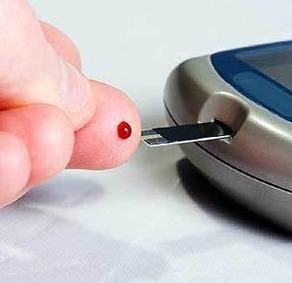This is a guest post by Cheretta A Clerkley of Hormone Health Network.
When you are the parent of a child with diabetes, the diagnosis can feel like a life sentence. While it is a life-changing diagnosis, it does not have to sentence your family to doom. With the right education and support, you can learn to control your child’s diabetes, and teach him or her how to manage it independently. Here are some strategies and tips to get you started:
Understand How Your Child Feels
Before you start teaching your child to control their diabetes, it’s important to remember how your child feels. The sudden changes brought on by a diabetes diagnosis are unpleasant. Your child now has to deal with food restrictions, injections and constant monitoring. She may think she is being punished — feeling ashamed or guilty. Even young children can fear death, simply because of the name “diabetes” and how it starts with “die.”
Because of these feelings, which particularly young children cannot verbalize, you may find your child acting out toward you. Give your child a little room for misbehavior as you both learn to adjust to this new normal.
Teach Your Child to Embrace Self Care
Because of the frightening consequences that are possible when diabetes is not controlled well, you may find yourself desiring to shelter your child and take over all aspects of care. However, JDRF, the Juvenile Diabetes Research Foundation, warns against this. Being too protective can actually harm your child’s self esteem and overall ability to cope with the disease.
Your job is to educate, supervise and encourage your child into comfortable self care. Get your child to the point where he can handle his own testing and knows what to do when he has a low blood sugar or high blood sugar episode. Developing proper self-care routines will help your child develop indepenedently with a strong sense of self esteem.
Of course, this has to happen when the child is emotionally and developmentally ready. Also, important tasks, like checking blood sugar levels or insulin injections, need to be properly monitored by you or a trusted caregiver.
Handling the Adolescent Years
If you have a young child with diabetes, you may think that the adolescent years (when your child can handle more of the self-care tasks independently), will be easier. However, many parents find that they are not. Children can rebel against the diabetes routine in these years, may be forgetful and may suffer from blood sugar changes as they go through puberty.
As a parent, be as supportive as possible during this time. Learn to support good self care without judgment, even when you feel frustrated with your teenager’s poor choices. Work with your teenager to decide who will handle which self-care tasks, and provide support when and where it is needed. Work as hard as you can to continue to approach the diabetes as a team, and you will see greater results and better handling of the disease.
Remember, diabetes will change life for you and your child, but it’s important to embrace those changes. Yes, the diagnosis comes with some burdens, but your job as a parent is to teach your child how to embrace those burdens to grow up strong and healthy. Educate yourself, then teach your child how to manage diabetes effectively and independently.
Healthy Changes to Make Around the House
One way you can support your child’s self care is by making changes around your home that will make controlling blood sugar easier.
First, make sure that your child is physically active. Exercise makes insulin work more effectively, so healthy exercise in your family will help the body function better. However, this can also mean that the child will need to adjust insulin or food intake before periods of physical activity.
Next, try to manage stress in your home. Stress can cause blood sugar levels to rise. Do what you can, as a parent, to maintain a peaceful, relaxed home environment, and monitor blood sugar levels more closely during periods of stress.
Finally, consider your food intake as it relates to insulin. Food raises blood glucose levels, and insulin and exercise help to lower them. To keep levels steady, teach your entire family to eat reasonable amounts consistently and on a set schedule. Focus on healthful foods that are low in sugar and simple carbohydrates. Then, monitor your diabetic child’s blood sugar levels regularly, and adjust insulin appropriately.
Remember, you, as the parent, have the power to teach your child self-care routines that will support a healthy lifestyle, even with diabetes, well into adulthood. Educate yourself, be serious about blood sugar control and support proper self care to give your diabetic child the best start in life.
Author Bio:
Cheretta A Clerkley is a strategic marketing health care professional for Hormone Health Network. She oversees patient education programs and services, focusing on issues such as diabetic health.
